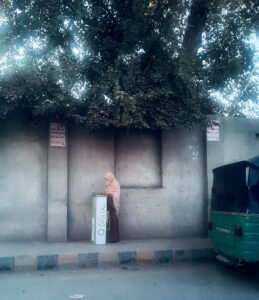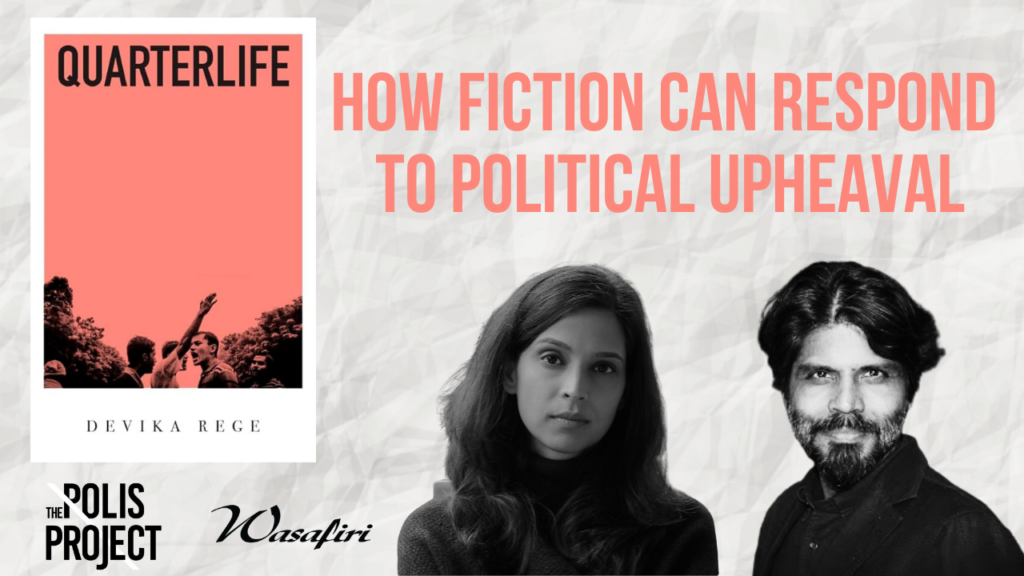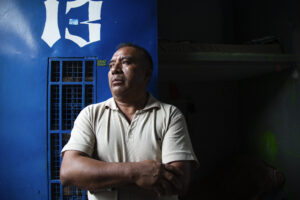
Quarterlife, Democracy, and India’s Shifting Political Landscape: Devika Rege in Conversation with Pankaj Mishra

Devika Rege’s debut novel, Quarterlife (Dialogue Books, 2023), chronicles the lives of young Indians whose diverse stories unfold against rising Hindu nationalism and neoliberalism in contemporary India. The Pune-born and based Rege constructs an ensemble of intersecting lives, revealing how a growing political ideology can infiltrate even the most intimate aspects of identity, beliefs, and love.
On 6 June 2025, The Polis Project, in collaboration with international literary magazine Wasafiri, held an event at Waterstones Gower Street, London, with Rege in conversation with the renowned author and literary critic Pankaj Mishra.
Rege and Mishra discussed India’s shifting political and psychosocial landscape, and the varied experiences of young Indians navigating capitalist modernity, religious nationalism, and the fractured promises of democracy.
“I wrote this book for over seven years,” Rege said. “What starts as a historical or sociological inquiry through the medium of the novel becomes, maybe, psychological. Or what starts as an aesthetic impulse might get ethically freighted.”
Mishra pointed out how “Quarterlife attempts to describe the very profound disruptions [and] ruptures in consciousness and souls in India.” For him, Quarterlife stood out because the sociopolitical chaos that Rege so skilfully dissects differs from most Indian novels in English.
The novel begins with foregrounding three characters, gradually expanding to a wider cast of ancillary, yet significant, interlinked characters. “There came a point where I just could not tell the book anymore from three points of view. It felt like a non-democratic thing to do,” Rege shared. “That’s why the novel starts opening up. It goes from three to nine to almost forty characters.”
Yet, as Rege acknowledged, no forty people encompass a nation, “so it became more about letting go of the hubris of a national allegory, and instead trying to just betray the limits of the enterprise itself.”
We’re pleased to share a recording of Rege and Mishra’s full conversation, lightly edited for clarity.





